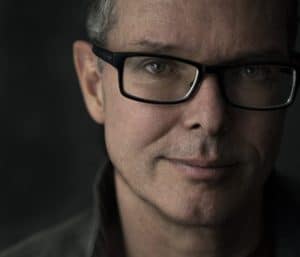
“As long as you are involved in dualistic concepts, it is not possible for you to observe our precepts. So how to get out of dualistic concepts and fill our being with gratitude is the point of practice.”
– Wind Bell, Teachings from the San Francisco Zen Center.
When we look directly at the precepts within the system of Reiki, we begin to see the start and the end of the practice, all in one beautiful description.
The precepts are the whole journey of our practice:
Do not anger
Do not worry
Be grateful
Be true to your way and your being
Show compassion to yourself and others
The start of our practice is called the view, the outlook so to speak; it is how we begin our personal practice within Mikao Usui’s teachings. Without the correct starting outlook, attitude, it will be hard to do our meditation practice. And without the correct way of meditating, we will not be able to have proper conduct, action. This in turn means there will be no fruit of the practice.
We need to have the correct outlook to start our practice with, else we will take the path that just circles around the mountain instead of going to the top of the mountain.
When we look deeply into the precepts we see that the start is emptiness. Because it is only in that state of mind of emptiness that there is no more anger and worry, that we can be truly grateful, that we can be true to our way and our being and that true compassion arises, compassion which doesn’t change with circumstances. Mikao Usui describes non-duality within the precepts; hence we need to start our personal practice from that view point, from that outlook, and not from a dualistic outlook.
Hopefully, through the reiju or another practice, we might have a glimpse of this emptiness, the essence of the precepts. Then we can start to properly meditate. Meditation in this way stands for familiarising ourselves. What are we familiarising ourselves with? With emptiness, with the precepts.
The more we are meditating, familiarising ourselves with the precepts, with emptiness, the more we can sustain this emptiness. We can begin to find it not just on our meditation pillow but also in our daily life. Through this overflowing into our daily life, we start to act with right conduct. All our actions in our daily life, today, slowly start to be infused with the precepts, emptiness, in all we do. This is really meditation in action. To take that a step deeper, our conduct comes from emptiness, spaciousness so to speak; we are wide open and not being overwhelmed by daily life. Therefore we can slowly start to maintain a life without anger and worry, with being grateful, being true to our way and our being, and by being compassionate.
Then at one point, through lots of diligent practice, we can rest our mind day and night in this state of mind. We have now integrated the precepts, emptiness in all we do. That is the fruit of our practice, the end, we may think.. But hang on…not really the end; we keep practicing….
So as you can see the precepts are the start and the end – the fruit of Mikao Usui’s teachings. This is why they are the foundation of the system of Reiki. But let’s take that a step further again because, as I said, this is not really the end.
Now when we maintain that state of mind 24 hours a day we can use this for compassion for others; we can guide others into that same realization. We find a compassion which has clarity, a clarity as to how to work with each individual instead of repeating the same words in the same way to all we work with. And a compassion which is not changing according to circumstances.
This is not an intellectual theory, this needs to be an actual direct experience, else it will not hold. Else we are still walking around the mountain and we have not reached the top of the mountain. So please be careful and do not get tricked into thinking that it is just an intellectual concept; it needs to be embodied in your mind and body. Then we can really say that we are practicing the system of Reiki, Mikao Usui’s teachings.
“When you observe the precepts without trying to observe the precepts, that is true observation of the precepts.” – Not Always So by Shunryu Suzuki

